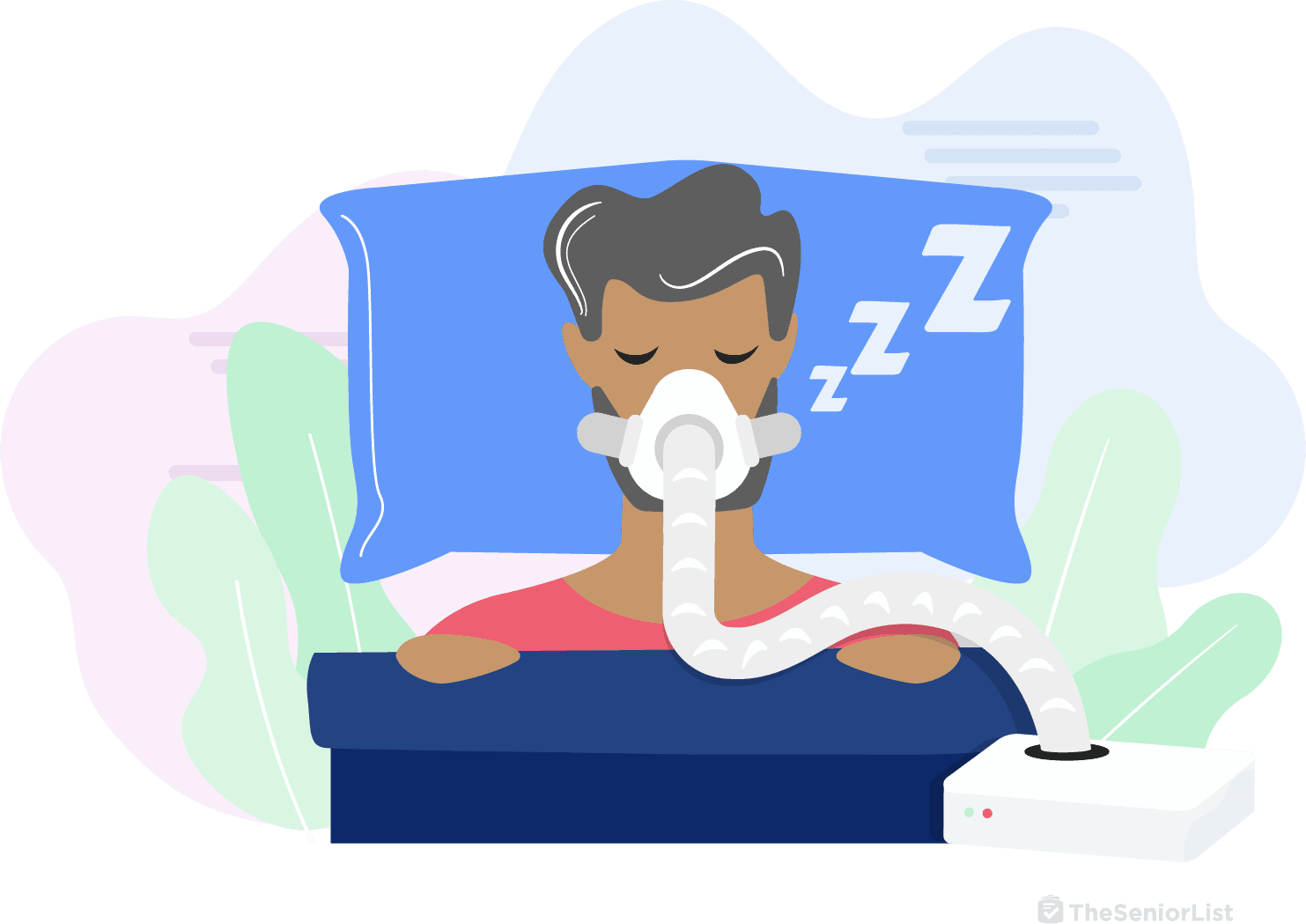Does Medicare Cover an Ambulance in 2026?

Medicare and Ambulances: What You Should Know
- Medicare Part B will cover ground ambulance transportation to a hospital or skilled nursing facility, provided traveling in any other vehicle could endanger your health.
- On average an ambulance trip costs $1,200. Assuming you’ve met your Part B deductible, you’ll pay a 20% coinsurance, amounting to $240.
- Most Medigap plans will cover the costs of Part B coinsurance. To find the right one for your needs, read our guide to the best Medigap providers.
In emergency situations, an ambulance can be the difference between life and death; however, ambulances are known to be costly, a fact that often keeps people from picking up the phone and dialing 9-1-1. Luckily, Medicare Part B covers most of the cost of ambulance services in life-threatening situations and even in non-emergency situations, provided the individual has a written doctor’s order.
Medicare Ambulance Coverage

Medicare Part B covers emergency ambulance services and non-emergency ambulance services if your specific health condition meets eligibility requirements. Medicare Part B does not cover the full cost, though. You’ll have to make a 20 percent coinsurance payment, in addition to your deductible.
The determination about whether an event is an emergency is up to Medicare, and some Part B claims do get denied. Because of this, it's important to be aware of what Medicare covers in case an emergency does arise.
Emergency Ambulance Services
Ambulance services are covered in an emergency in the following circumstances only:
- Transportation in any other vehicle would endanger your health
- You are unconscious or bleeding heavily and need medical treatment during transport
Medicare will decide after the trip whether the condition was serious enough to require an ambulance or if other transportation could have safely transported you to the hospital. For example, if you can physically walk to a vehicle, Medicare may decide that an ambulance was unnecessary and refuse to cover the trip. Additionally, Medicare will cover transport to the nearest hospital, critical access hospital, or skilled nursing facility only.
Non-Emergency Ambulance Services
Medicare Part B will cover non-emergency ambulance services in specific circumstances requiring a written order from your doctor. An example is someone with a medical condition that requires ambulance transportation to a facility for chemotherapy, radiation, or dialysis treatment.
Requirements for this kind of order for ambulance transportation include individuals who are confined to their bed or a wheelchair, or those who need medical treatment during the trip for a scheduled doctor’s appointment that emergency responders can provide, such as medication administration or specialized monitoring.
Cost of an Ambulance With Medicare
The cost of an ambulance trip is 20 percent of the Medicare-approved trip amount after you have met the yearly Part B deductible, which is $226 in 2023. This percentage breakdown may change if you are transported to a critical access hospital as opposed to a regular hospital or a skilled nursing facility.
Ground ambulance costs can vary between $200 and $2,000 per transport. If an ambulance trip costs $850, and an individual has already hit their deductible, the patient is responsible for 20 percent of the full cost, or a $170 out-of-pocket bill.
One challenge with Medicare coverage of ambulance trips, especially in emergency situations, is that Medicare may determine after the fact that the trip did not constitute an emergency and bill you directly. Individuals find out through the Medicare Summary Notice, which is sent out every three months, if their trip wasn’t covered.
Medigap and Ambulance Coverage
If you have a health condition that may increase your need for ambulance transportation, consider getting a Medigap plan to cover Medicare Part B coinsurance or deductible payments All Medigap, or Medicare supplemental insurance plans, cover all or a percentage of your emergency and non-emergency Medicare Part B 20 percent coinsurance.
Specifically, Medigap Plans C and F cover the full Part B deductible. The other Medigap plans do not cover the deductible but do help with coinsurance fees. Check out our guide to the best Medigap providers if you decide this coverage is necessary.
The Centers for Medicare & Medicaid Services did away with first-dollar coverage plans in 2020. Therefore, you can get only Plan C and Plan F if you were eligible for Medicare before 2020.
Pro Tip: Medigap plans vary by state and by your age and medical history, so make sure to check the fine print on any plan before purchasing it. To learn more, read my guide to Medigap.
Medicare Advantage and Ambulance Coverage
Medicare Advantage plans, also known as Medicare Part C, cover all or some of the ambulance transport costs. Advantage plans often cover the Part B deductible as well and some or all of your ambulance copay. The amount varies depending on the plan you have and what state you live in.
Does Medicare Cover an Air Ambulance?
In extreme situations, Medicare may also pay for emergency ambulance service by airplane or helicopter if ground transportation is unable to provide assistance. This service is covered in the following circumstances only:
- You need immediate medical attention, and traffic or distance makes travel to the nearest hospital by ground transportation impossible or impractical
- The aircrew is covered by Medicare
- A doctor determines air transport is absolutely necessary
Air ambulances are costly, and claims can be denied, especially if an out-of-network air ambulance provides transportation, which can leave patients with a hefty bill. If you live in a rural area and have a medical condition that may increase the need for an ambulance, consider a Medigap plan to avoid a larger medical bill.
Pro Tip: If you don’t agree with a Medicare coverage decision, you may appeal it by submitting a Redetermination Request Form.
Does Medicare Pay for Transportation to Doctor Appointments?
Medicare does not pay for transportation to standard doctor appointments. However, Medicare may cover ambulance trips if your doctor writes an order stating the ambulance is necessary for a certain medical condition. Examples of these appointments include:
- Radiation appointments
- Dialysis appointments
Some states allow individuals to schedule non-emergency ambulance transportation. Opting for this service will help patients figure out if their scheduled visits are covered by Medicare prior to the trip itself.
Bottom Line
While the cost of ambulance transportation can be high, Medicare can step in to cover much of the cost for those who are eligible.
Medicare and Ambulance Frequently Asked Questions
-
Does Medicare pay ambulance fees?
Medicare Part B pays for 80 percent of an ambulance transportation fee after the yearly deductible has been met. Emergency trips are covered only when a trip in any other vehicle would endanger the patient’s health. Non-emergency visits are only covered if the individual has a written order from their doctor that an ambulance is necessary.
-
Will Medicare pay for ambulances from hospital to home?
Medicare generally does not pay for ambulances from the hospital back home unless it meets the coverage parameters of an emergency (i.e., medical attention from emergency responders are necessary for the trip back) or if a written doctor’s order deems it medically necessary.
-
Does Medicaid pay for ambulances?
Medicaid covers emergency ambulance transportation if the providers are licensed by the state. Medicaid covers non-emergency ambulance transportation with a written doctor’s order. Coverage varies by state, so be sure to check what your state’s parameters are.
-
Will Medicare pay for medical transportation?
Medicare Part B will cover medical transportation with a written doctor’s order or in an emergency situation. However, it’s not guaranteed they will cover it.
-
How are ambulance services billed?
Ambulance services are billed after the trip. You will receive a notice of whether Medicare covered the trip in your online Medicare account or your next Medicare Summary Notice. If a certain ambulance company believes Medicare may not cover your trip, they are required to give you an Advance Beneficiary Notice of Noncoverage for the ambulance trip cost.




